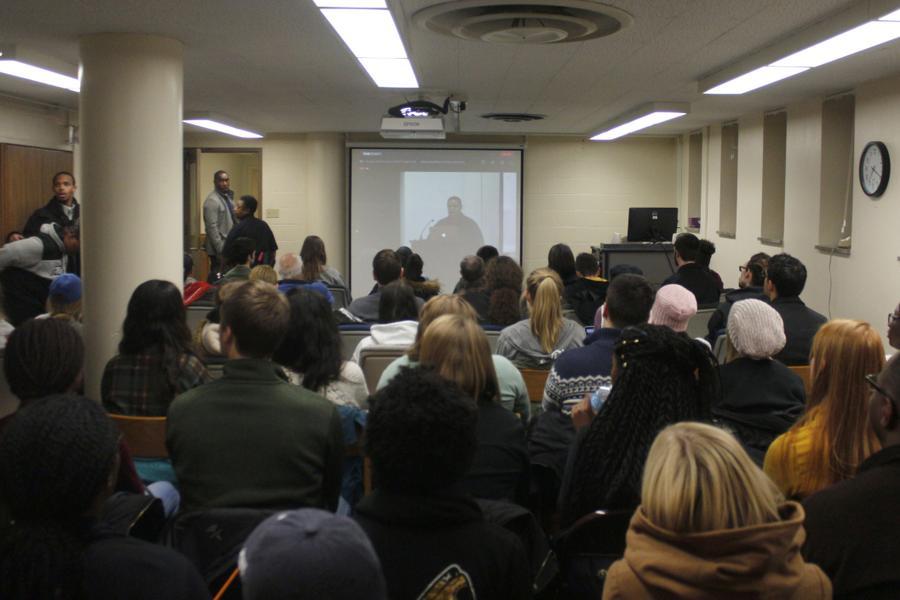
Keeanga-Yamahtta Taylor, assistant professor of African American studies at Princeton University, spoke at MU on Wednesday night to discuss her book “From #BlackLivesMatter to Black Liberation.” About 60 people filled a room in Ellis Library to hear Taylor speak.
Taylor’s views on black liberation have been published in outlets such as The Guardian, Salon and Jacobin Magazine.
She encouraged people to disagree, ask questions and engage with her talk.
“I usually end up irritating all sorts of people, and not in ways that everyone necessarily expects,” Taylor said.
The departments of Black Studies and Peace Studies hosted the talk. Peace Studies Director Dr. Clarence Lo was complimentary of Taylor’s work.
“Professor Taylor is a public intellectual, a person who does not only deal with teaching and research and service, but is vitally connected to other broader publics in society, in dialogue with them in an attempt to improve society,” Lo said to the audience before Taylor spoke.
Taylor blames both the Republican and Democratic parties for the current political landscape.
“Indeed, in December 2008 [after the election of former President Barack Obama], Forbes Magazine ran an over-exuberant article claiming that ‘racism is over,’” Taylor said to laughs in the crowd. “More than eight long, dreary years later, we couldn’t be further from that conversation. Racism is not over in the United States, but an unabashed racist sits at its helm.”
President Donald Trump was not the only object of Taylor’s critique.
“We must be clear about how we got to this point,” Taylor said. “And in doing so, it is critical to remember that embedded inside of every right-wing backlash is the failure of the liberal establishment to provide a better way.”
Taylor said the media’s analysis of President Trump’s rise due to populist rhetoric during his campaign was incomplete at best; she cited the median income of most Trump voters at $72,000 per year, versus the $55,000 of the average white voter. She blames Trump’s rise on the Democratic party’s fall, saying that Hillary Clinton promised a hypothetical third term under Obama.
“The paralysis of the presidency of Obama was a hard pill to swallow,” Taylor said, claiming that in 2008 and 2010, “people weren’t looking for a symbolic victory.”
Taylor is currently working on a second book, “Race for Profit: Black Housing and the Urban Crisis of the 1970s.”
“Combining the analysis of race and class is a wonderful way by which we can understand a whole lot of other phenomena in society,” Lo said. “Sports to international development, many topics can be fruitfully examined through the intersectionality of race and class.”
Taylor’s speech is one of many events MU is featuring in celebration of Black History Month. Payton Head, former Missouri Students Association president, will return to speak at MU on Feb. 20. Ragtag Cinema will hold a free screening of “School Daze” on Feb. 22. A tribute event to Monica Hand, a poet and former graduate teaching assistant at MU who died Dec. 15, and to Nina Simone will be held Feb. 24 at the Missouri Theatre.
_Edited by Kyle LaHucik | [email protected]_